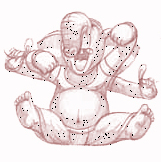Police arrested about 300 activists from different parties early Thursday, the first day of the opposition's anti-monarchy demonstrations across Nepal's capital, a top opposition leader said.............
Top students leaders, women's activists and members of the country's seven main political parties were among those arrested, said Khadga Prasad Oli, a top communist leader and one of the organizers of the four-day nationwide strike to pressure King Gyanendra to restore democracy more than a year after he seized control of the government
A communist leader wanting to restore democracy??
The statement of a communist leader wanting to restore democracy sounds strange to a lot of us who think that communnism is the opposite of democracy. I too used to think that, till one day a communist student leader gently told me something about what he did.
communism is the opposite of capitalism, not democracy.
in a country, profits are divided between the labour and the
capitalist ( owner ). This was true in classical industrial situations
like factories, mills, agriculture etc.
Now in america you see wages remaining stagnant or even going down a
little while companies report enormous profit growth ( eg Walmart ).
The share of profits going to the labour force used to be very small
earlier, then came the unionization, government regulation and then
shortage of labor force, which led to a steady increase in the share
of profits that went to labor. Now with India and China entering the
global labor pool, employers in developed countries, like US, are
moving their production/work to cheaper locations. This has led to the
decline in the share of profits going to labor in the last 10 years or
so.
Communism emerged as an alternative to this model, where it was the
vision of Karl Marx that workers of the world would unite and take
control of the means of production ( employee owned factories /
collective farms ). During the Clinton dot.com era, surprisingly, a
lot of communist principles were in play in the market, like employee
ownership of their companies ( stock options ). Communism also aims at
a fair redistribution of wealth. They talk of taking all the land from
the landowners and then redistributing it equally to all people. Also
of free education, free healthcare, free housing etc etc to all people
provided by the state. This means that the difference in standard of
living between the upper layer and the bottom layer is very less.
What they did say was that in most capitalist countries, democracy has
become controlled by people with money. There has emerged a upper
elite of rich men who control most things. In such cases if there is
no other way then it is better to bring a revolution and change the
system.
As with most systems, the practical implementation of these ideals
proved to be difficult. Once the communist systems were in place,
there emerged a ruling elite who started to control the system and
dictators like Stalin, Mao gave it a bad name.
The lessons the communists learned from the previous century ( which
can also be called the communist century ) were many. One lesson, was
that a communist movement must remain connected to the poor, the
workers, the labor and the countryside. This was shown in Vietnam and
in China, where peoples armies won victories and ended up ruling the
country. Another lesson learned is that there is a tendency of
communist systems to become like dictatorships, so there must be
strong democratic systems inside the communist party which allow the
people to have a strong voice in the system. The third lesson learned
was that even though communist systems are unglamorous, with run down
cars and industrial style buildings, they still do a very good job of
providing education, security and healthcare to their citizens.
The crime rate in USSR was very low, Cuba has excellent healthcare and
education. Earlier jokes were made about east european and soviet
countries, about how people stood in line for hours etc. and how their
cars were tincans on wheels. Capitalism swept into these countries
after the fall of the berlin wall. Then came the mafia, prostitution,
homeless, breakdown in healthcare for the poor, drop in literacy
levels and enornous amounts of theft, robbery and bribery. Say what
you may about Cuba, but the same hurricanes hit Cuba and Louisiana.
The poor and underpriviliged were left exposed in US and their
condition was exposed for everyone to see.
For a long time in many countries, the communists have entered the
mainstream, formed political parties and fought elections aiming to
use the democratic structure to come into power. In India, communists
have consistently ruled two states, through victories in elections, a
good organised grassroots party structure and consistent pro poor
policies. Kerala and Bengal have had communist party governments and
they have not done too badly. In fact kerala has education and
healthcare levels comparable to the best in the world. In bengal, it
has been a mixed success, capital and factories fled when the
communists came to power. They however did carry out a successful land
redistribution programme among the farmers and landless labourers.
There is a marked difference visible in the living standards and
mentality of the poorest of the poor in these places. There is a lack
of mercedes benzes and five star hotels though and the flight of
capital has led to tremendous unemployment. Still now, with education
levels and basic infrastructure being very good in Bengal, factories
and software companies, outsourcing shops etc are returning there and
they are very much part of the boom.
Communism probably should be understood as "community ruled" or
"community based". It emphasises the role of communities and groups
and unions and collectives. Capitalism emphasises individuality and
money, capital and millionaires. Therefore to think that communism
automatically rules out democracy is a wrong assumption. Communism has
slogans like " Power to the people". Capitalism has slogans like "
Survival of the fittest".
In nepal, the communist party fought elections whenever possible. The
party had been formed to struggle against imperialism and feudalism,
as symbolised by the rule of the Rana kings in Nepal. Their moment of
truth came in 1991 elections. The results of the elections,
demonstrated that a coalition of various communist parties was a major
political force in Nepalese politics
Now in Nepal, there was an incident which makes a mockery, both of
free speech, media reporting, law and order, international diplomacy
and many other things. Having turned over most power to the parliament
and democratically elected governments, the king was taking a backseat
in politics. This was a threat to the entrenched vested interests,
like the Generals in the army, the large landowners, the power brokers
et al. So one fine day, a few years ago, the entire royal family was
gunned down at their own dining table. The story was released that the
crown prince had a tragic romance, which upset him, and he killed his
whole family and then shot himself. Of the people in the room, only
one cousin survived. Co incidentally that cousin is now the crown
prince of nepal and his father Gyanendra is now the new king.
Gyanendra gradually consolidated power, dissolved parliament and
kicked out all elected representatives. The political parties could do
not much but protest, since the Royal Nepal Army was on the side of
Gyanendra. It was the communists who retreated back into the
underground, into the villages and hills and launched a grassroots
movement, which has been fighting the Army for control of the land. At
last estimates, the communists controlled more than 60% of nepal,
running parallel governments, collecting taxes, running tribunals,
hospitals, courts etc.
The support for the King is dwindling. India which had earlier
supported him, now strongly urges him to hold elections again and
restore democracy. China too, does not look too kindly on his
activites. To continue the fight against the Communists, the King
needs weapons. China and India both are reluctant to give them to him.
Who else can he turn to. Surprise!, there is one country which is
willing to support him and send him weapons, the USA. They probably
feel that having a brutal despotic murdering ruler is preferable to a
democratically elected communist government.
Thats what my opinion of the situation in Nepal is. I grew up about 50
miles from the india - nepalese border. I travelled through its roads
and villages and mountains a lot and some of my best friends are
nepalese. It was indeed a sad day for all of us, and a dark day for
justice and truth, when the royal family was massacred and the new
king siezed power. That is the relevant question, of why the world
stood by and let it happen. The fact that communists are fighting him
and want to restore democracy and fight elections is not such a
strange thing.
read my earlier blog entry
http://dotook.blogspot.com/2006/02/interview-with-communist-leader-of.html
for the interview with Prachanda who is heading the communist party
movement in nepal.






